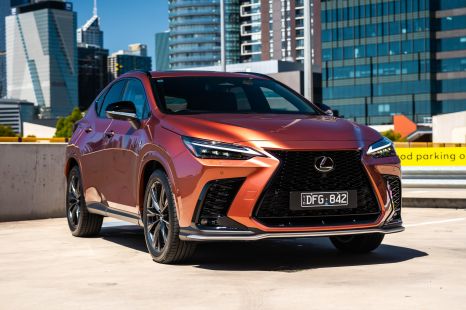

Max Davies
2025 Lexus NX450h+ F Sport review
1 Month Ago
MG's largest vehicle in Australia has been redesigned, and it's a big step in the right direction for the Chinese brand.
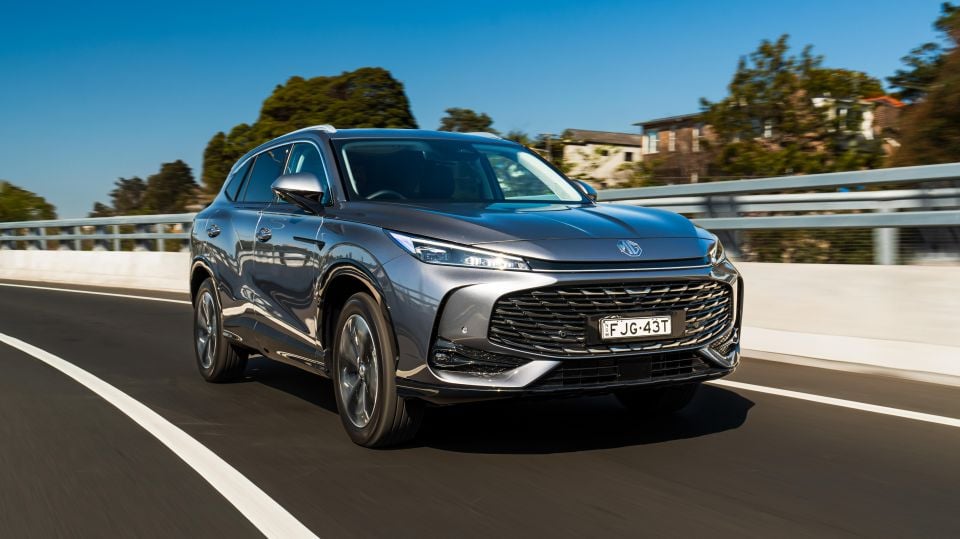


Quickly see how this car stacks up against its competition. Select any benchmark to see more details.
Where expert car reviews meet expert car buying – CarExpert gives you trusted advice, personalised service and real savings on your next new car.
MG’s brand-new mid-sized SUV is here, and it comes bearing the weight of expectation.
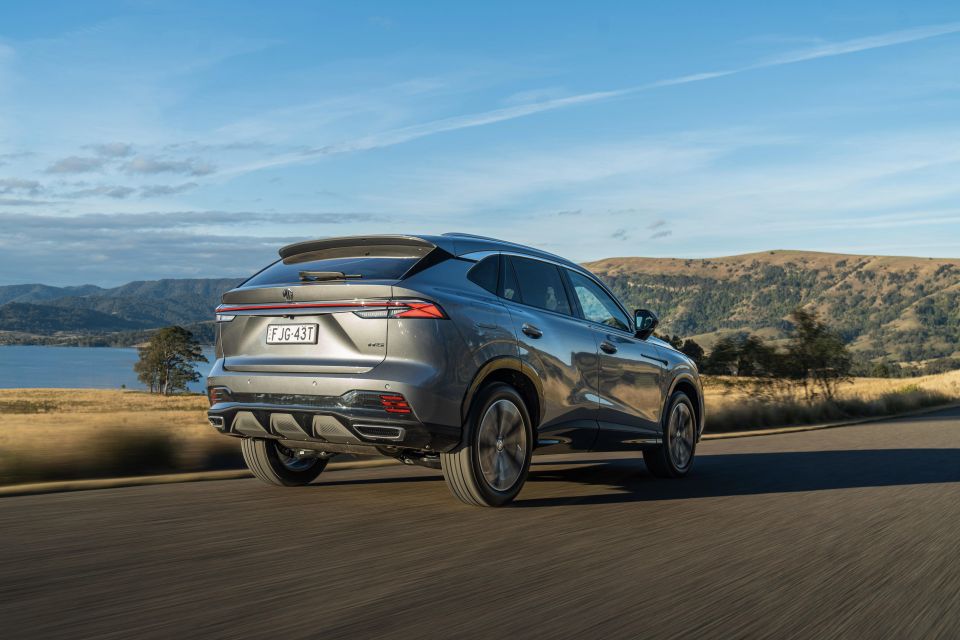
Though the HS only arrived in Australia in late 2019, MG is already launching a new generation which brings the mid-sized SUV more in line with other models in its showrooms.
It now wears the brand’s latest design language on the outside, which is understated yet stylish in its own right. You’ll notice it bears a striking resemblance to the latest MG 3 in particular, and it’s a step away from the brand’s cheaper cars from the past 10 years.
The inside in particular is a reflection of that, because it has seen a significant overhaul. It’s headlined by dual 12.3-inch displays, which share the same panel for a more streamlined appearance, while there’s also fresh materials and extra storage.
On test here is the range-topping 2025 MG HS Essence. Like the previous HS, the new one features a 1.5-litre turbocharged engine with a dual-clutch transmission. However, both the engine and transmission have been refined to make the HS nicer to drive.
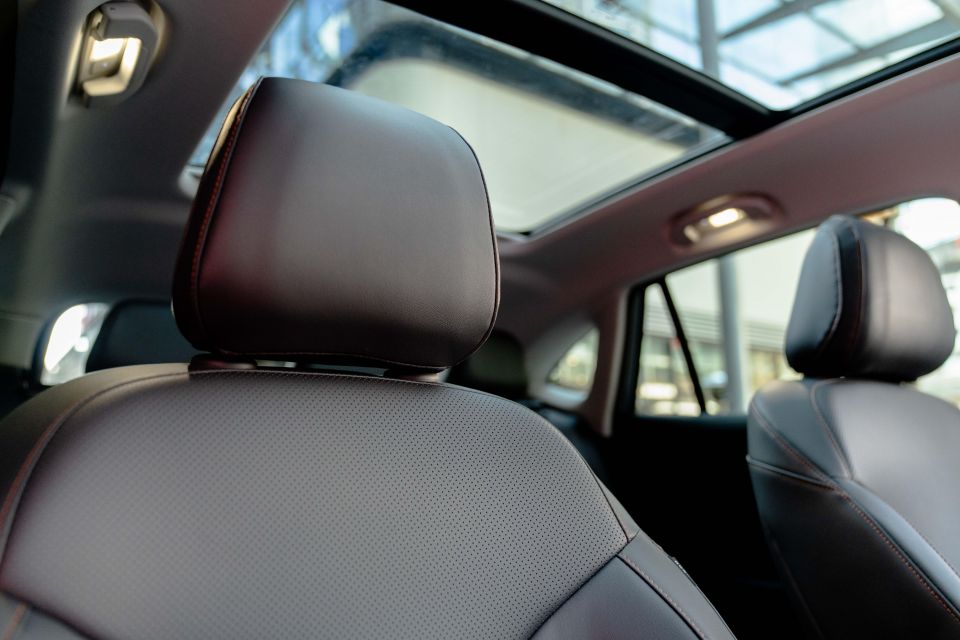
There are no plug-in hybrid models yet, but they’re due to arrive in the first half of next year. Once they’re here, MG anticipates they could prove to be in higher demand than their standard petrol counterparts.
All of the enhancements and added tech comes at a premium, because this top-spec model is $7000 more expensive than its older equivalent.
Is the new model worth the price increase, or does the old model still have everything you need?
The petrol HS range has increased in price for 2025, including a hefty hike of $7000 on the top-spec Essence variant.
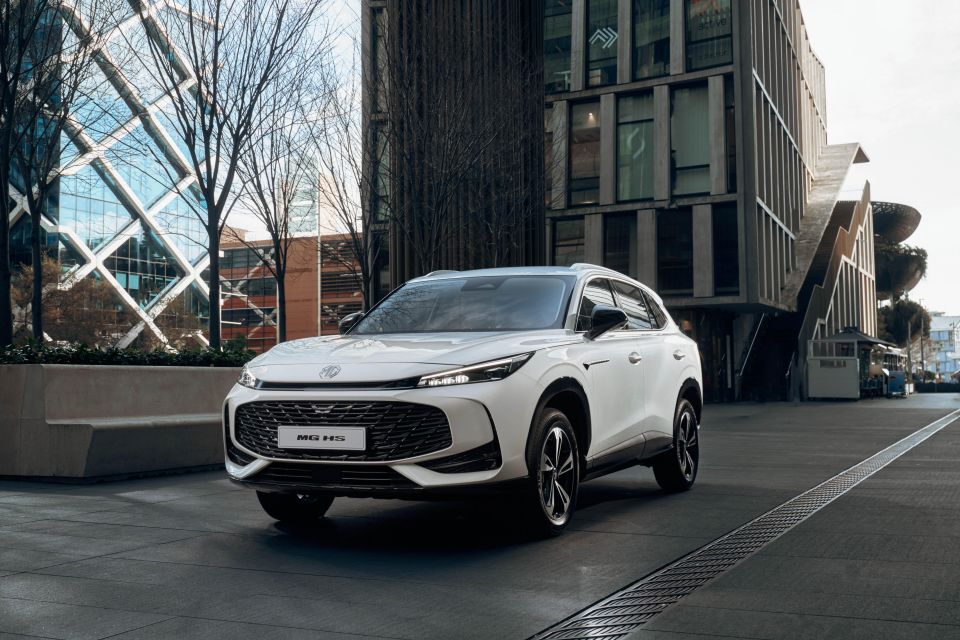
| Model | Drive-away pricing |
|---|---|
| 2025 MG HS Vibe | $33,990 (+$4000) |
| 2025 MG HS Excite | $36,990 (+$5000) |
| 2025 MG HS Essence | $40,990 (+$7000) |
To see how the MG HS stacks up against its rivals, check out our comparison tool.
Buy your new car without the stress. It's fast, simple and completely free.
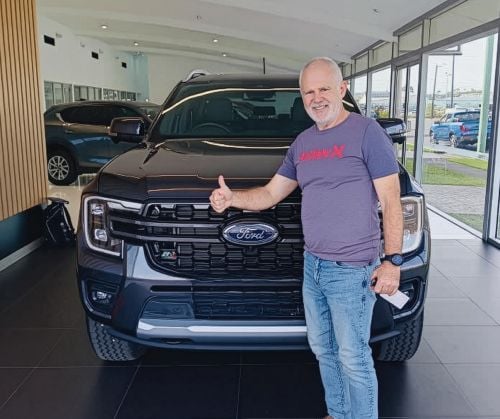
Great service from Travis and team, second time I have used this business would not hesitate to recommend them to anyone
Craig C.
Purchased a Ford Ranger in Sunshine Coast, QLD
CarExpert helped Craig save $7,224 on his Ford Ranger, now let us save you on your next new car.
Get your BEST priceIf you’ve tried the latest in MG’s catalogue, the HS’ cabin won’t surprise you. If you haven’t, you’d be forgiven for thinking it was from a different brand entirely.

MG’s new design language has brought with it a new philosophy on interior design. Where the old HS was more traditional with its modest centre screen and analogue instrument cluster, the new model has shifted to a borderline minimalist setup headlined by a large dual-screen display.
Gone is the instrument cluster of old, replaced with a 12.3-inch digital screen that shares a panel with an infotainment display of the same size – much like you’d find in a new Hyundai or Kia.
It’s clean and clear, which is exactly what you want when you want to see key vehicle info at a glance. It switches between light and dark backgrounds depending on whether the headlights are on or not, and it doesn’t waste time doing so when you pass through a tunnel or under a wide bridge.
Equally, the instrument display is minimalist in its layout, which may not work for everyone but does mean there’s a place for everything where you’d expect it. The key variable on the screen is the information panel on the right, which you can navigate using a button on the steering wheel.
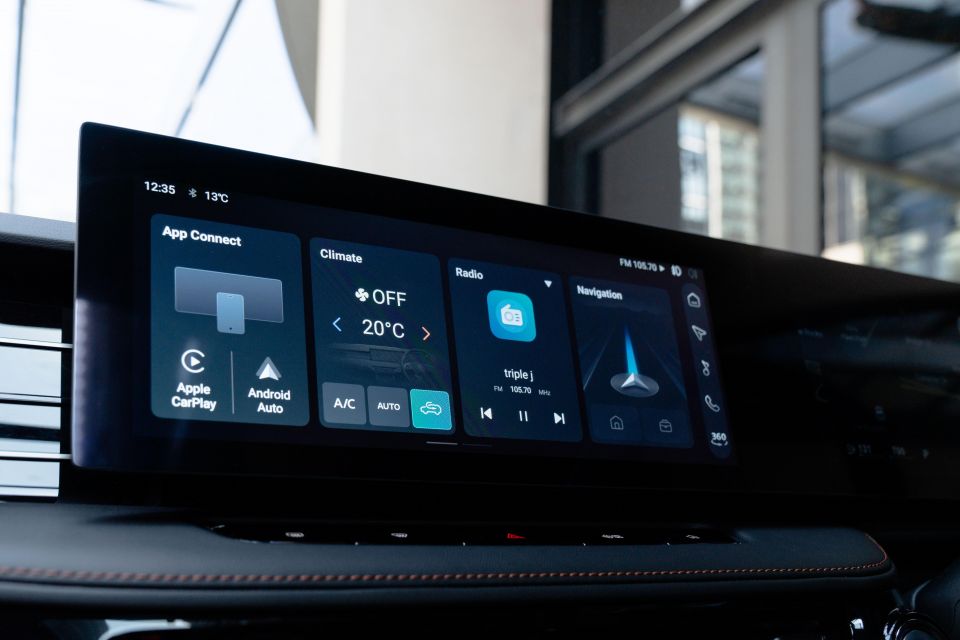
The only real gripe I could find with the screen was it had the potential to be obscured depending on where the seat and steering wheel were adjusted. Thankfully, it’s only the top corners that could be cut off, and a quick peek behind the wheel revealed it was only some blank space that was hidden.
While the infotainment display is handsome and well-integrated, there are some aspects that could be cumbersome to deal with in the long run. One is the way the climate control system is set up, because you can’t operate it by a typical button arrangement or dedicated digital display.
It instead resides entirely within the infotainment screen. There is a dedicated menu here, but if you’re using Apple CarPlay or Android Auto it can only be accessed via the infotainment system’s home screen or by pressing one of the less direct buttons below.
On the native home screen there’s a dedicated panel, but it still feels like there’s enough space to have a small dedicated display on the dashboard below. It’s understandably similar to the setup in something like an MG 4, though it’s no less inconvenient here.
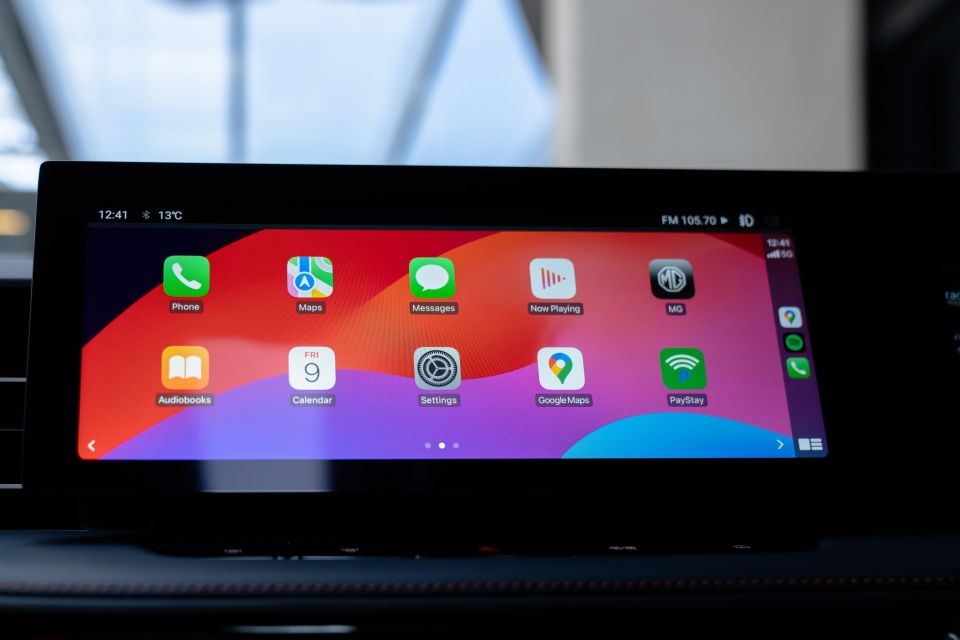
Our brief time with the car also revealed another issue with the infotainment system, and that was that Apple CarPlay would not activate. The new HS only offers a wired connection, but even with the physical link it just wouldn’t work.
As a result you do lose some functionality, but MG makes up for it with its native software. For example, you get satellite navigation as standard, which in the Excite and Essence can also be shown on right side of the instrument cluster at the press of a button.
Both screens have crisp graphics, and while they’re relatively simple in terms of layout it does make it easy to find what you’re looking for. There’s a vertical array of touchscreen buttons for key shortcuts.
Generally, the presentation of the interior is stylish and the materials are all high-quality and nice to either look at or interact with, regardless of variant.

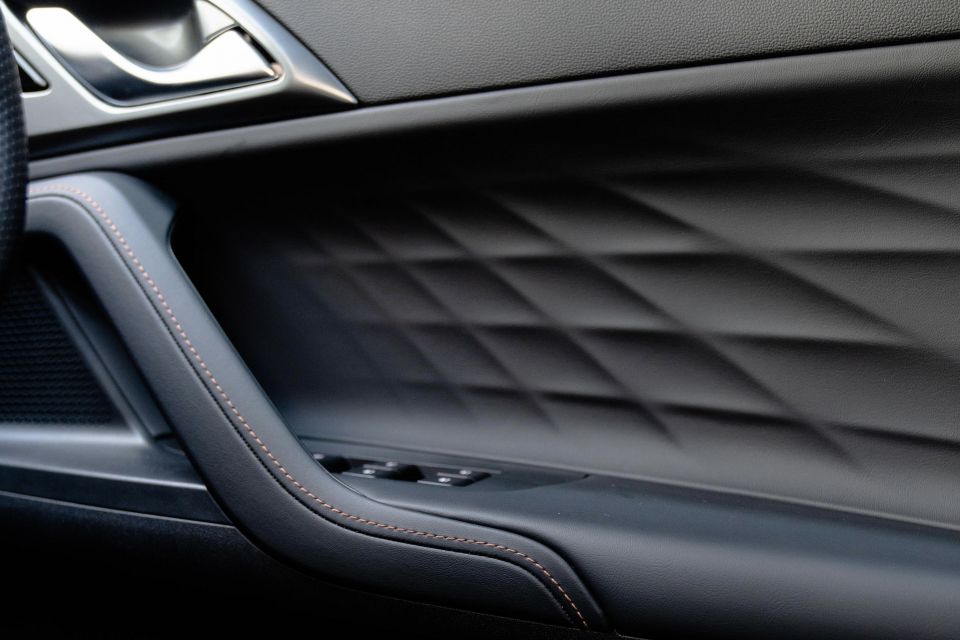
The chunky, squared-off steering wheel feels nice and high-quality. It’s upholstered in perforated leather too, except in the base Vibe, and it bears a striking similarity to a Volkswagen wheel – hardly a bad thing.
The buttons on the spokes work as they should and operate with a satisfying action.
As in other MG products the primary controls come in the form of two toggles, reminiscent of a gaming controller. They’re finished in a material that’s metallic in appearance, and though they lack word labels or unique icons it’s easy enough to figure them out with a bit of poking and prodding.
The rest of the cabin has build quality that’s hard to fault. There are no creaks or rattles, and the majority of its surfaces are at least somewhat soft to the touch.
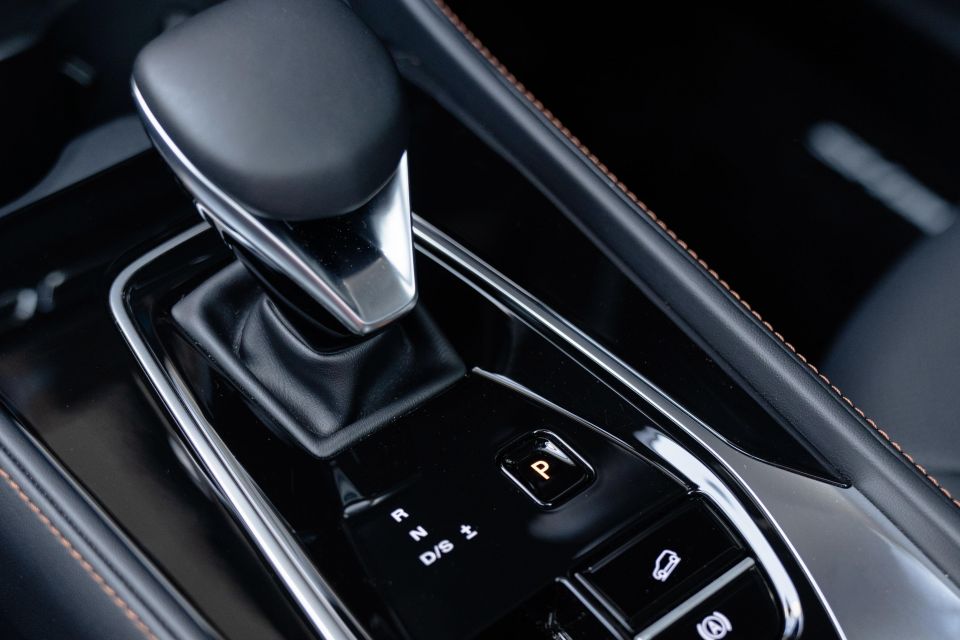
The seats are upholstered in what MG lists as ‘PVC’, and it’s a leather-like material that is nice to the touch and comfortable to sit in. All HS variants offer power adjustment for the driver’s seat, though the top-spec Essence adds powered lumbar support on top.
They’re comfortable to sit in, and the story remains the same regardless of whether it’s upholstered in cloth or the more luxurious material of the more expensive variants.
Leather-like material continues to the lid of the centre console storage box, which is comfortable as an armrest. Unusually, it takes some force to pull this lid up all the way.
Similarly, the gear selector is finished in nice leather, though a downside is it does reside in a sea of gloss black plastic.
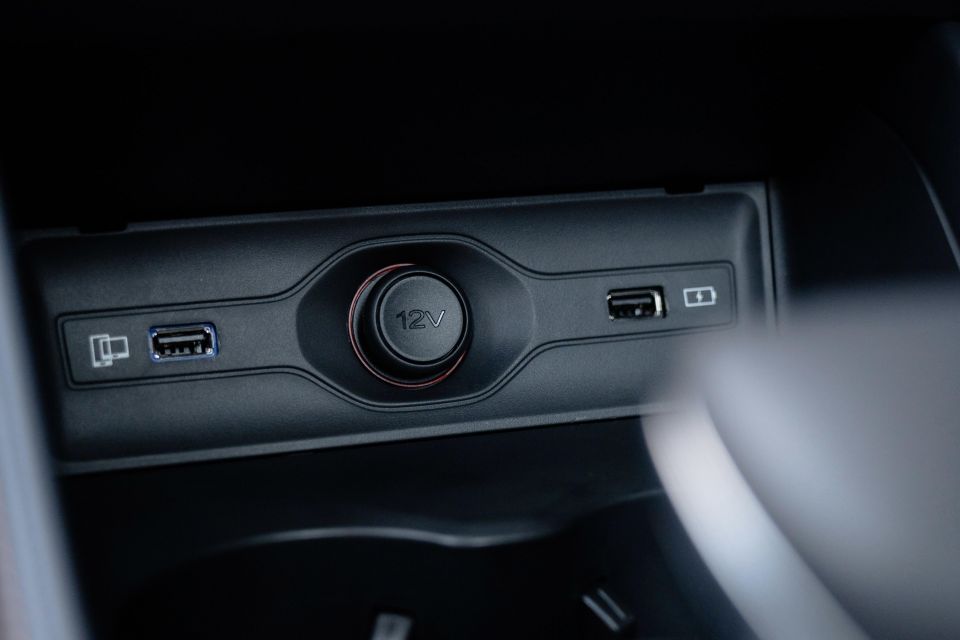
There’s plenty of storage up front, including a pair of central cupholders, door card bottle holders, a glovebox, and a central storage box under the armrest.
The Essence variant also adds a sunglasses holder above the rear view mirror, and you’ll notice a large sunroof just above that.
As a bonus, the Essence grade adds a wireless charging pad ahead of the centre console. Phone charging is otherwise accomplished via either the 12V outlet or right-hand USB-A port up front, while the other one is reserved for phone connectivity.
In grades other than the Essence, you’ll have to put your phone in the cupholder as there’s no space where we usually see phone cut-outs up front.
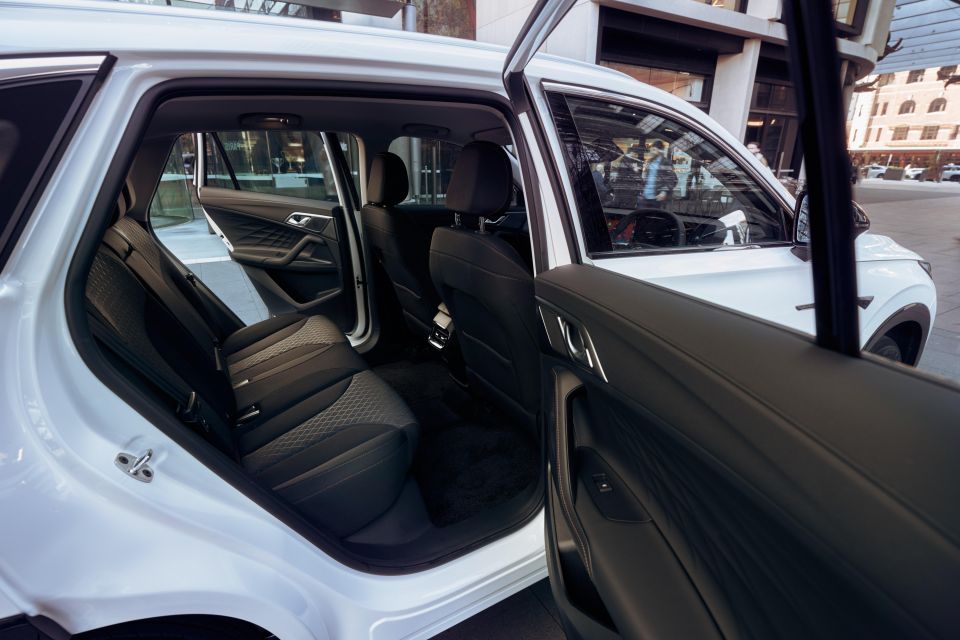
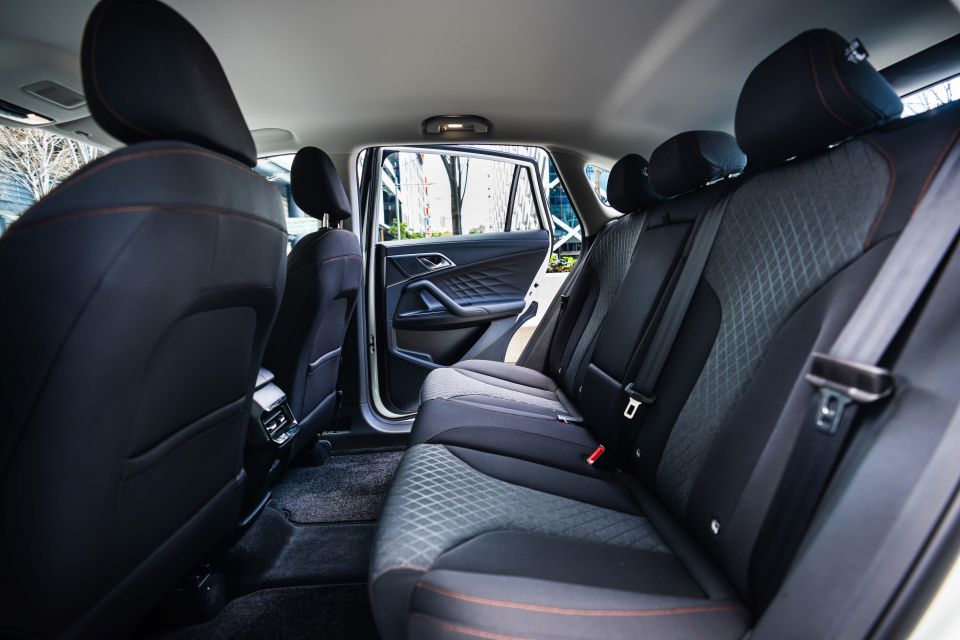
Stepping into the back reveals a very comfortable space, and getting in is easy enough on account of the large door opening. There’s loads of room, with leg room being especially impressive.
The new HS’ shorter stature doesn’t eat into headroom, and keeping passengers comfortable are two central air vents. Below these sit a pair of USB-A charging ports.
There’s not anything major to complain about back here, as MG has done an exceptional job in providing for families of all sizes inside the HS.
If you have a young family, you’ll also be able to make use of the two ISOFIX anchors and three top tether points for child seats. Passengers in the back can also make use of the central folding armrest, which opens to reveal two cupholders surrounded by a gloss black bezel.
Some design elements from the front continue here too, like the three-dimensional patterns on the inside of the door cards and metallic elements like the door handles and speakers.
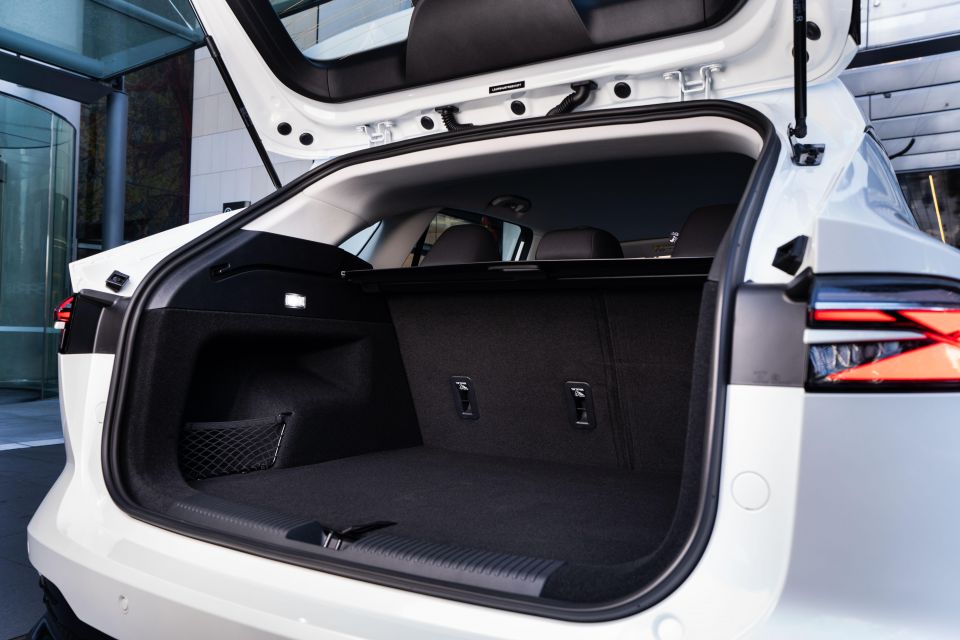
Thanks to its lengthened wheelbase, you now get nearly 200 litres of added boot space with the rear seats folded down. Capacity is 44 litres larger with the seats up, which means you should have plenty to work with when hauling cargo.
The load entry is fairly high, but at least the floor is mostly flat behind the initial lip. There’s a cargo shade up top, as well as a small light that turns on when you open the boot.
Storage is flexible back here too, as beyond the standard boot space there’s a cut-out with a cargo net to store various odds and ends. Under that floor is a full-size spare too, which is always a nice bonus.
Essence variants are fitted with a power tailgate as standard, making it easier to access with full hands.
| Dimensions | MG HS |
|---|---|
| Length | 4655mm |
| Width | 1890mm |
| Height | 1655mm |
| Wheelbase | 2765mm |
| Cargo capacity | 507 litres (rear seats up) 1484 litres (rear seats folded) |
To see how the MG HS stacks up against its rivals, check out our comparison tool.
The new MG HS, like its predecessor, comes standard with a turbocharged 1.5-litre four-cylinder engine, though there have been some more subtle tweaks elsewhere.
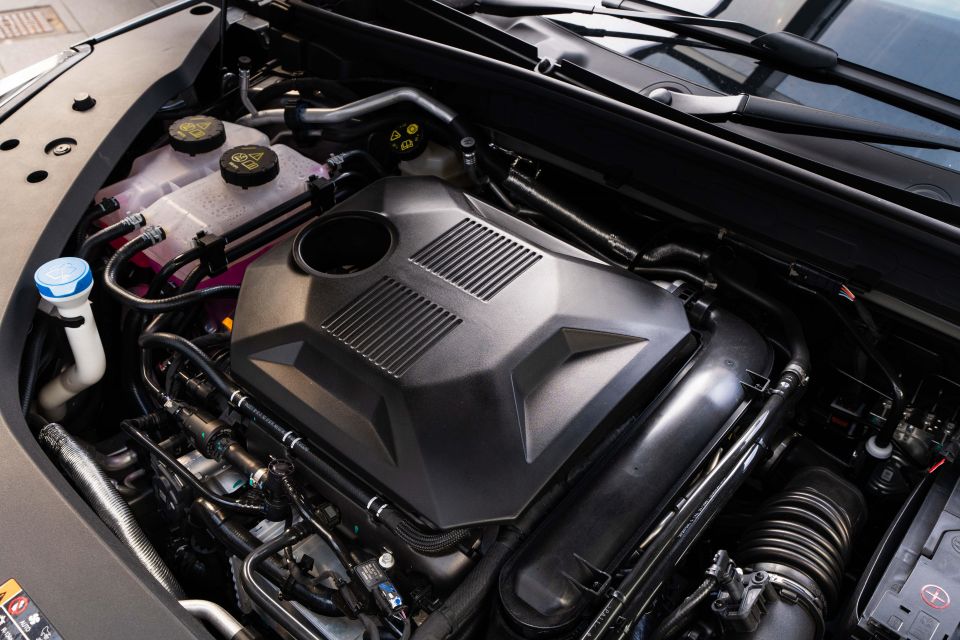
Notably, the new HS boasts a new wet dual-clutch transmission over the old dry-clutch setup, which is designed to provide smooth shifts at low speed and eliminate some of the stumbles such transmissions can suffer from.
Its power and torque figures have also been boosted by 6kW and 25Nm respectively, which was done with the intention of rounding out its power delivery with a wider usable range.
| Specifications | MG HS |
|---|---|
| Engine | 1.5L 4cyl turbo |
| Power | 125kW |
| Torque | 275Nm |
| Transmission | 7-speed dual-clutch transmission |
| Driven wheels | Front-wheel drive |
| Tare mass | 1554kg (Vibe) 1559kg (Excite) 1599kg (Essence) |
| Fuel economy (claimed) | 6.9L/100km |
| Fuel economy (as tested) | 7.5L/100km |
| Fuel tank capacity | 55L |
| Fuel requirement | 95 RON |
| CO2 emissions | 156g/km |
| Braked tow capacity | 1500kg |
To see how the MG HS stacks up against its rivals, check out our comparison tool.
Put simply, I was impressed.
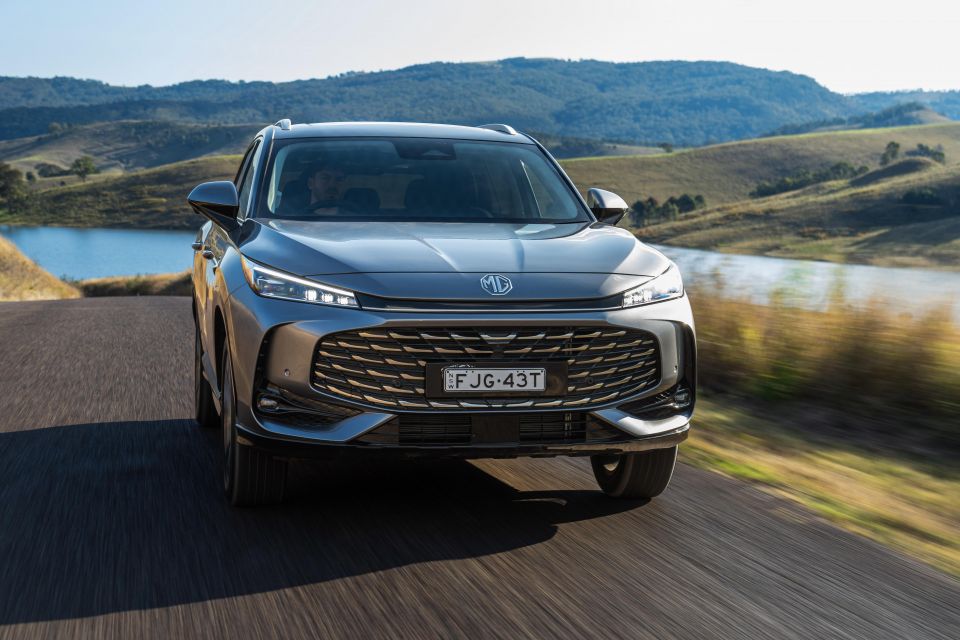
Where expert car reviews meet expert car buying – CarExpert gives you trusted advice, personalised service and real savings on your next new car.
One of the first things you’ll notice when pulling away is how much like a European car the HS feels. Its new dual-clutch gearbox still behaves with similar characteristics to a Volkswagen unit, but the efforts to iron out rough low-speed shifting seem to have worked.
It now shifts quickly and smoothly regardless of the circumstances, which means you’re able to take in the improved 1.5-litre engine.
The power boost is noticeable, and while it isn’t necessarily fast it certainly has enough oomph to get itself up to speed without any trouble. While it’s refined, the engine does produce a fairly gruff, meaty note that’s apparent when you climb higher in the rev range.
Even though you can hear that engine, it doesn’t take away from the driving experience at all.
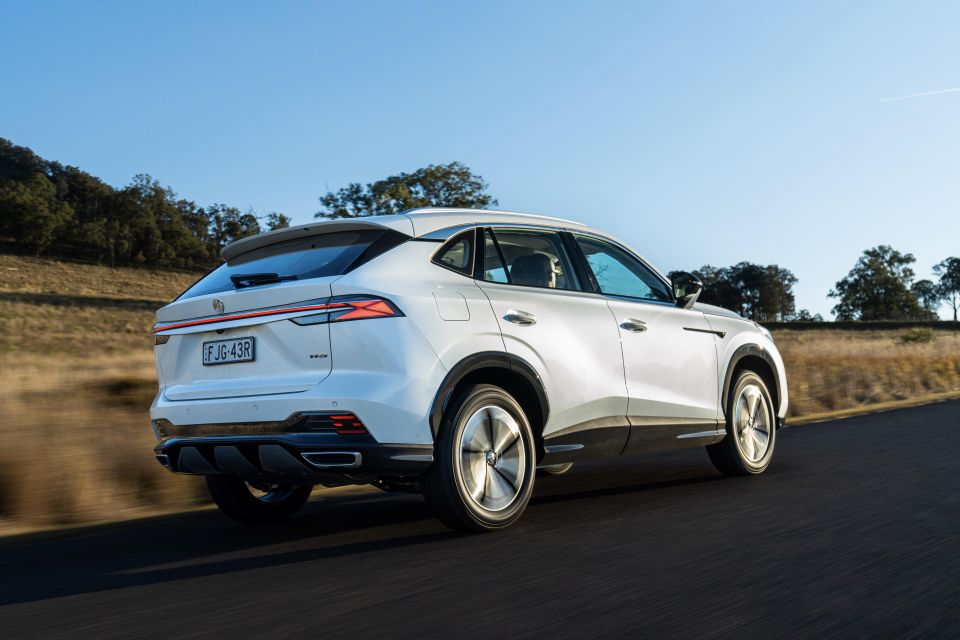
When you’re on the road, the interior of the HS is incredibly quiet. Even at speeds of up to 80km/h you hear next to no road or wind noise, though we didn’t get the chance to travel any faster on our inner-Sydney drive route.
MG went to great lengths to explain how it had tried to refine the ride of the HS for the new generation, and it seems its efforts have paid off.
Notably, the brand says it has added significant insulation and sound deadening around the cabin and engine bay in places it wasn’t included before, which has contributed to its borderline silent atmosphere.
It’s impressive for a car at this price point to present in such a way, and even the lower-profile tyres fitted to our tester didn’t have any noticeable impact on road noise. We expect the 18-inch wheels wrapped in chunkier tyres fitted to the base Vibe would perform even better.
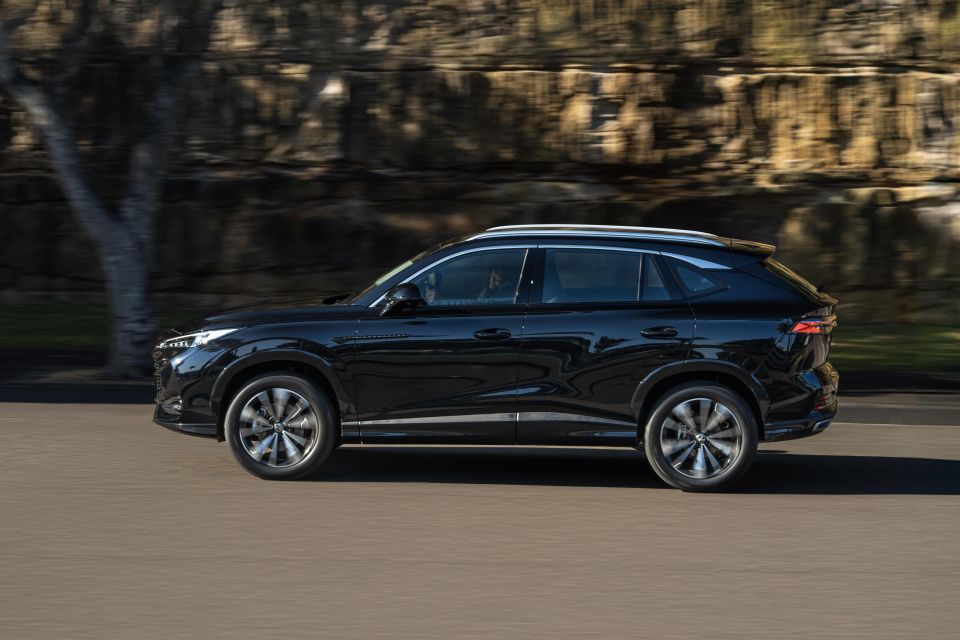
With the 19-inch wheels, the Essence is well composed over bumps, never feels unsettling or jarring, and has no problem staying in its lane on the highway.
The HS’ handling is also refined, as it’ll happily turn a corner at speed while staying relatively flat despite its size.
Like in any car, turning while braking isn’t a great idea, but it does demonstrate the car’s ability to control itself without locking a wheel or cutting back braking power.
There’s no question it’s a large car, but to its credit it never quite feels like it’s massive on the road even if it’s wider than something like a Toyota RAV4 (which has a maximum width of 1865mm).
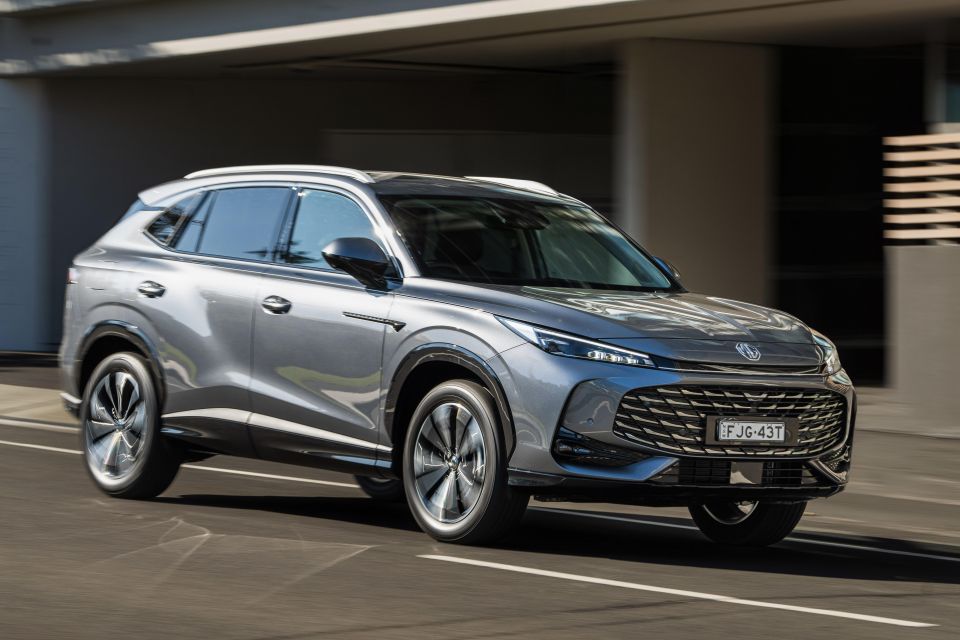
The HS cruised effortlessly along Sydney’s congested highways, and this was made even better by the fact there were hardly any issues with the driver assist features.
The MG never made a noise about staying in a lane or accidentally getting close to the white line, and it only warned about other cars when they were in my blind spot.
It only threw up one warning to tell me to pay attention to the road, which was warranted as I rummaged around for a water bottle.
Though all HS variants have assistance tech like blind-spot monitoring as standard, you don’t have to rely on them to know what’s going on around you as visibility is excellent.
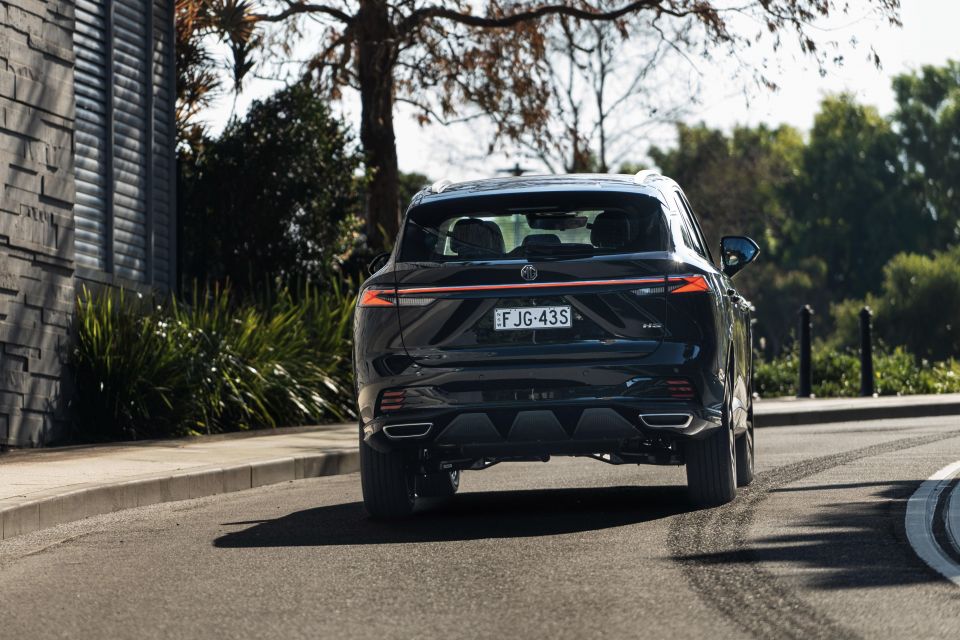
MG has considered visibility issues, however, as there’s an array of cameras to help you in and out of tight spaces. A key feature is the 360-degree camera with its transparent chassis function, which makes it easy to know where you’re placing the car.
The assist systems in general seem to be well-calibrated, with no false warnings or alarms to speak of.
Overall, the HS is comfortable, smooth, and quiet, which is hard to fault at this price point.
To see how the MG HS stacks up against its rivals, check out our comparison tool.
There are three distinct HS grades, with some quality-of-life differences to set them apart.


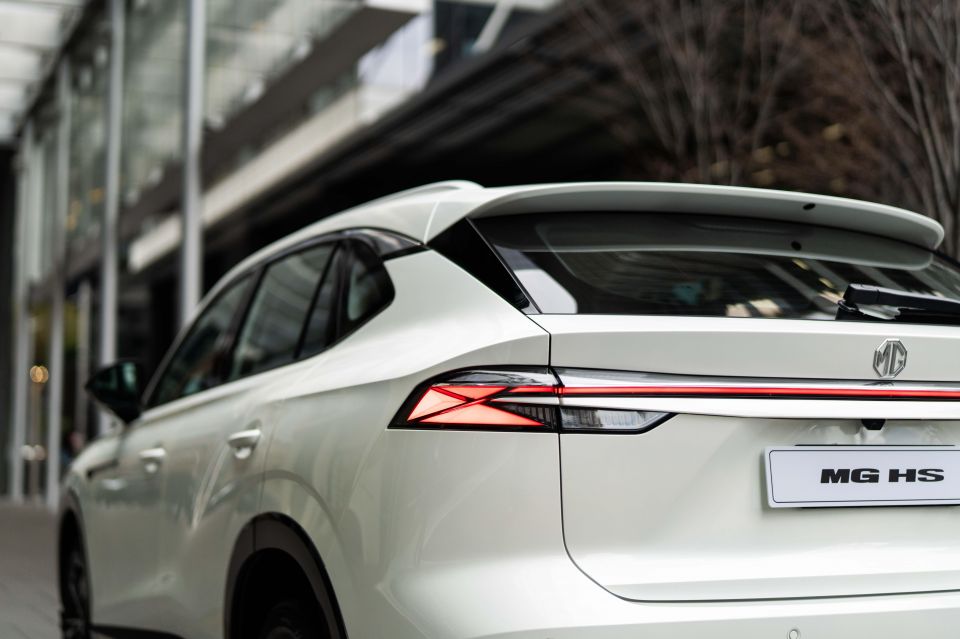
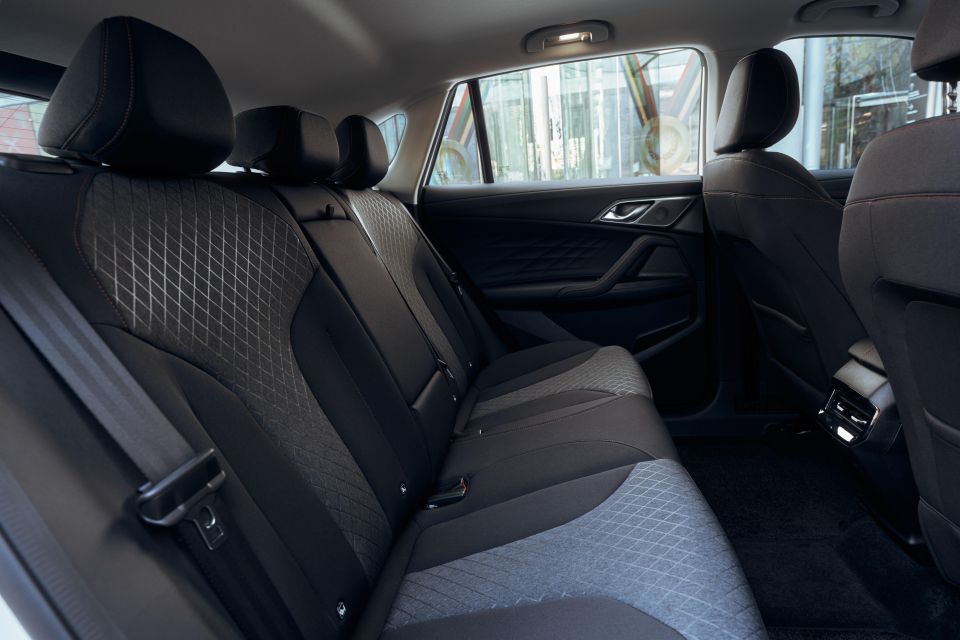
Standard equipment on the HS Vibe includes:
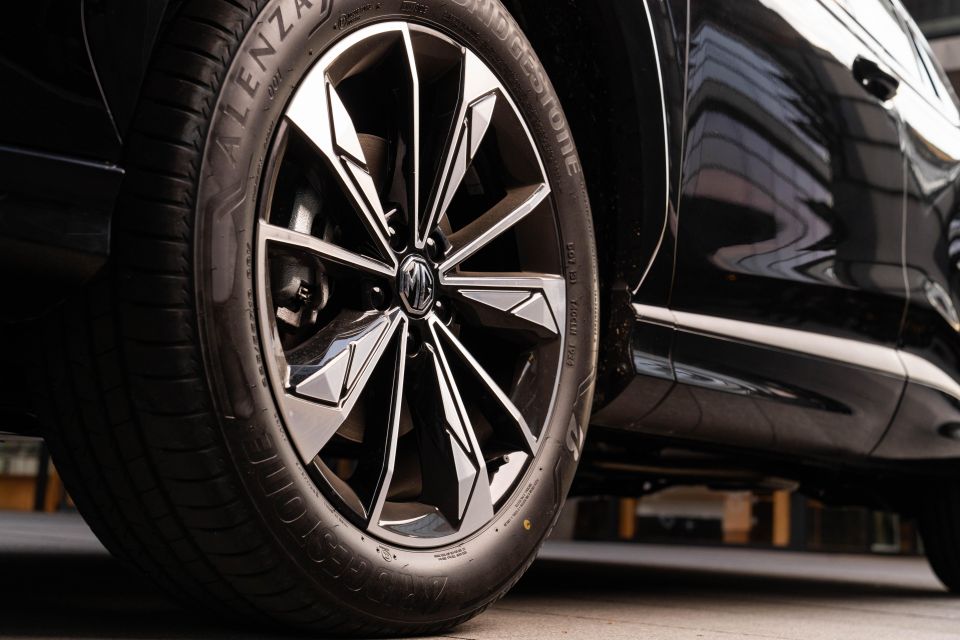
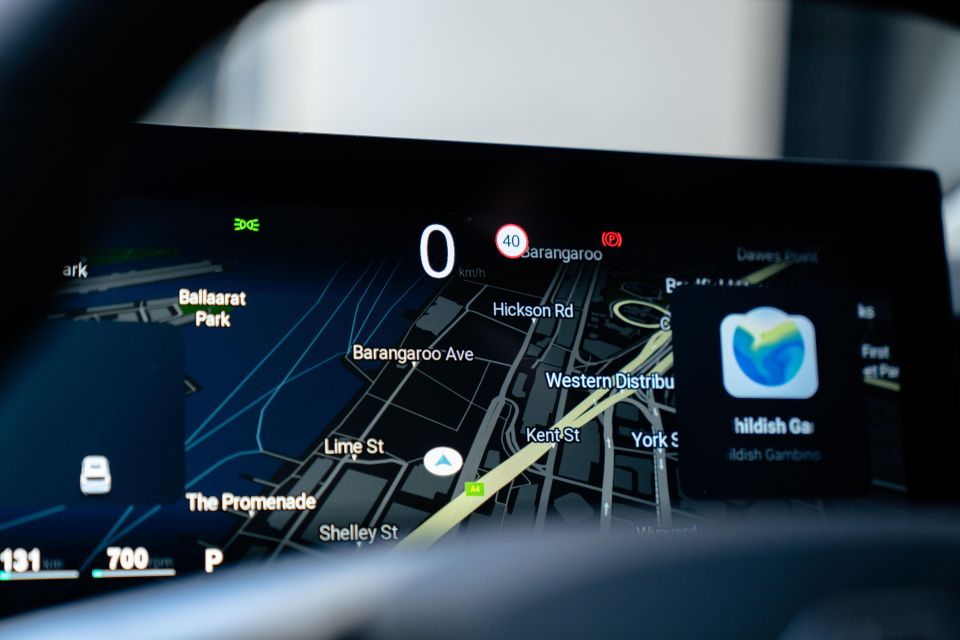
The Excite adds:
The Essence adds:
The new HS is yet to be tested by ANCAP or Euro NCAP, and is therefore unrated. MG has said it’s “confident” the new model will achieve a high safety rating once it has been assessed.
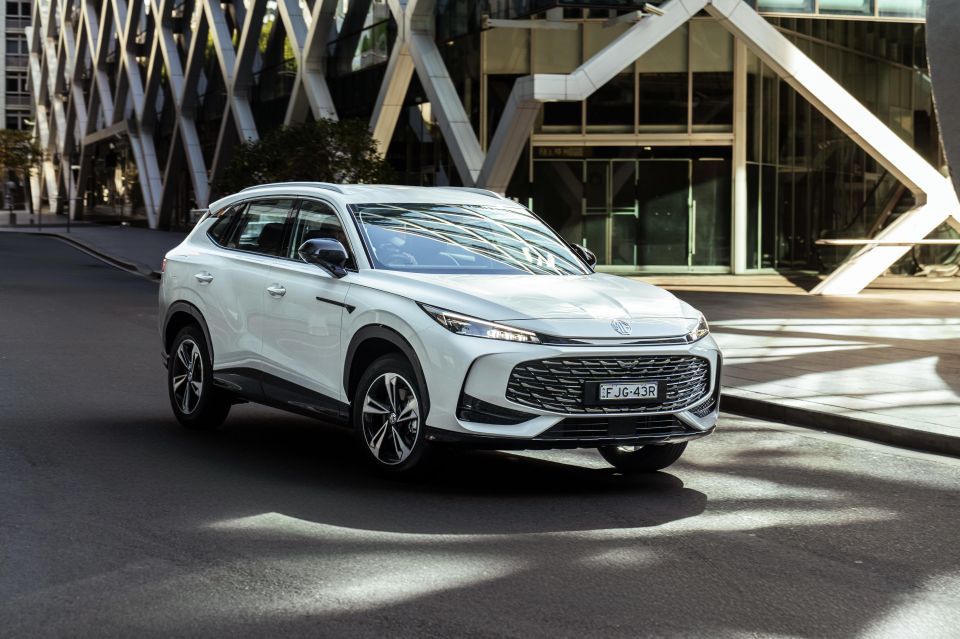
Standard safety features on all MG HS variants include:
Excite and above add:
The new HS benefits from MG’s “industry-leading” 10-year, 250,000 kilometre warranty, standard on all of its new cars.
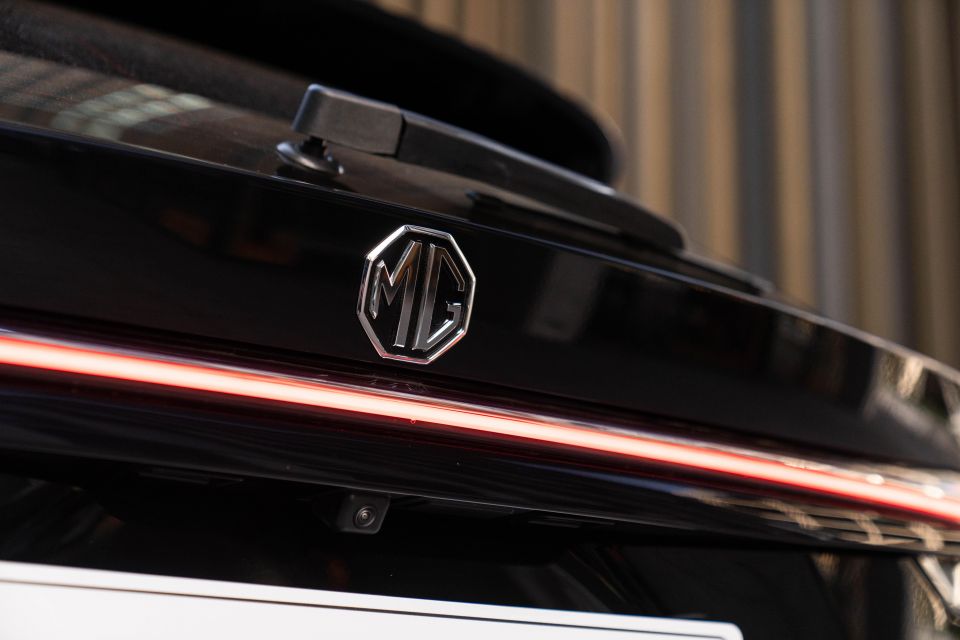
Servicing is required every 12 months or 15,000 kilometres, with capped-price servicing outlined for the first 10 visits.
| Running costs | MG HS |
|---|---|
| Warranty | 10 years or 250,000 kilometres |
| Roadside assistance | 10 years (service-activated) |
| Service intervals | 12 months or 15,000 kilometres |
| Capped-price servicing | 10 years |
| Total capped-price service cost (5 years) | $2354 |
| Total capped-price service cost | $5741 |
To see how the MG HS stacks up against its rivals, check out our comparison tool.
Buy your new car without the stress. It's fast, simple and completely free.

Great service from Travis and team, second time I have used this business would not hesitate to recommend them to anyone
Craig C.
Purchased a Ford Ranger in Sunshine Coast, QLD
CarExpert helped Craig save $7,224 on his Ford Ranger, now let us save you on your next new car.
Get your BEST priceThere’s no question – the new HS is a drastic improvement on the outgoing model.

It’s larger, more practical, more efficient, and packed with all the latest tech.
The effort that has gone into making the on-road experience as quiet and refined as possible has worked, and we’re impressed at how easy it is to spend time in.
Safety tech has been improved too, which means you won’t be inconvenienced by poorly calibrated systems.
Topping it off is the improved drivetrain, which now responds much better to throttle input and behaves consistently at all speeds. MG said it felt European, and to our surprise it definitely does.
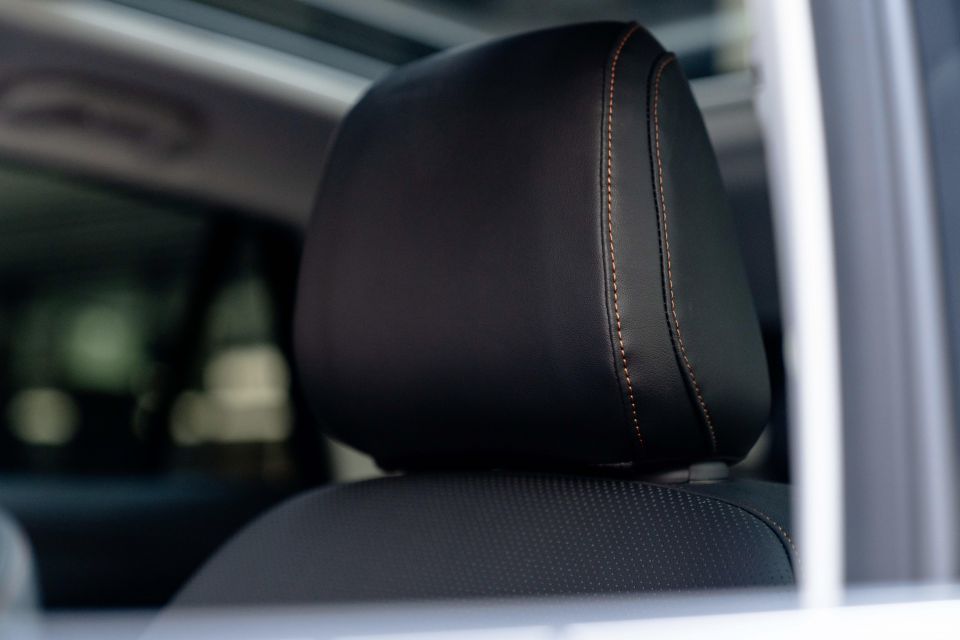
Sure, it’s more expensive than it used to be. Given the competition though, it’s still competitively priced and offers a lot for the money you’re paying. Drive-away pricing is also attractive, and unlike the MG 3, CarExpert understands there are no further plans to amend prices.
You do get some quality goodies in the top-spec Essence, but a lot of them are creature comforts like seat heating and a large sunroof. As the grades are all similar and reasonably priced, we don’t think the most expensive version is the choice.
It’s disappointing the range lacks wireless smartphone mirroring, and if you can live without powered front seat adjustment, the middling Excite version offers plenty of bang for your buck.
If you’re not convinced, it’s worth getting your hands on one to see what it’s all about when it touches down later this year.
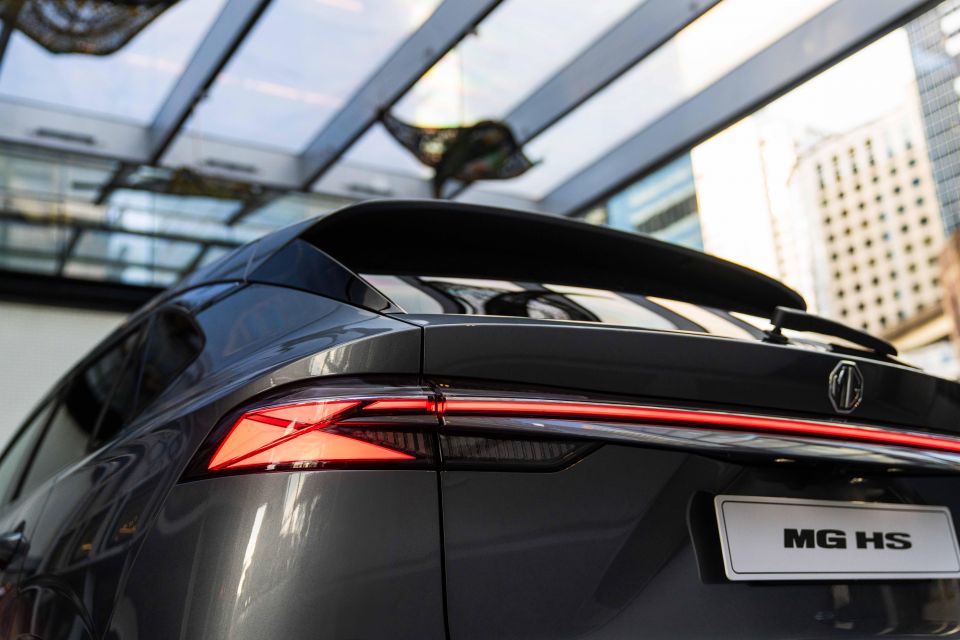
Click the images for the full gallery
MORE: Buy an MG HS MORE: Everything MG HS
Where expert car reviews meet expert car buying – CarExpert gives you trusted advice, personalised service and real savings on your next new car.
Max Davies is a CarExpert journalist with a background in regional media, with a passion for Japanese brands and motorsport.


Max Davies
1 Month Ago
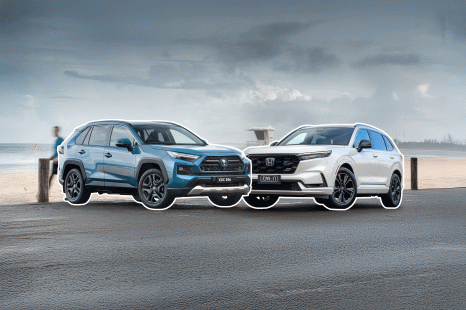

Andrew Maclean
22 Days Ago


James Wong
19 Days Ago


Max Davies
17 Days Ago
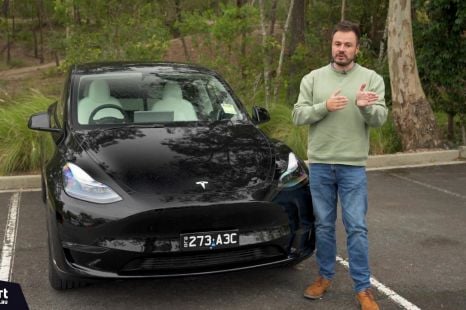

Paul Maric
15 Days Ago
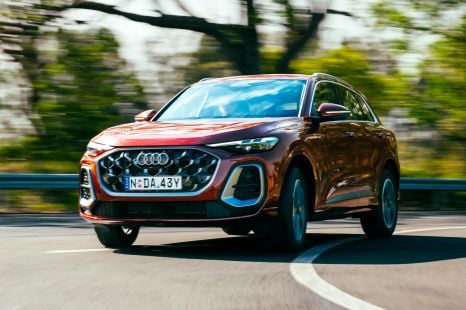

James Wong
11 Days Ago